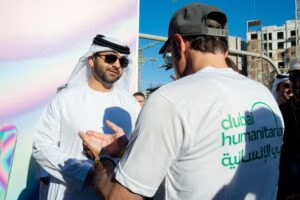eJaby, the innovative homegrown e-commerce marketplace, has officially launched in the UAE, marking the next major step in transforming the e-commerce market supply chain in the region. Poised to tackle overstock due to factors like shelf life or inventory surplus, as well as sustainability challenges in the region’s dynamic market, eJaby platform connects consumers directly with premium-quality overstock products, creating a win-win scenario for conscious consumers, suppliers, and the environment.
Maxim Haartsen, Co-founder and CEO of eJaby tells us how he envisioned this and what inspired him to create eJaby. He said, “We noticed something we all encounter far too often — perfectly good food being discarded just because it’s approaching its best-before date. It’s one of those moments that makes you cringe, knowing the waste could be avoided.”
“That sparked a deeper look into the issue and its environmental impact. We found that in this region alone, food waste from food service and retail reaches a staggering $23 billion annually. On average, that’s 250kg of wasted food per person every year. That’s when we realized—why not turn this problem into an opportunity? And that’s how eJaby came to life, offering both quality and value in every purchase, while helping reduce overstock surplus,” he added.
eJaby also highlighted their aims to contribute to the UAE’s sustainability goals.” We project an estimate of 5 million food products to be saved through the business model over the next 4 years, contributing to the goal of decreasing food waste by 50% by the year 2030,” Haartsen said.

Highlighting a few of the core challenges during the ideation process, he remarked that “building a marketplace model is challenging in itself, and balancing out the supply and demand side simultaneously from scratch asks for dedication and resilience.”
Co-founders Maxim Haartsen and Menna Shahin also intend to pitch the program in the Saudi market. The former said, “Across the region, we see many similarities in both supplier and consumer behaviors.”
He went on to add, “If we project this on a larger population with similar sustainability goals, such as the Saudi Vision 2030 vision, we are sure to see phenomenal opportunities for growth.”







